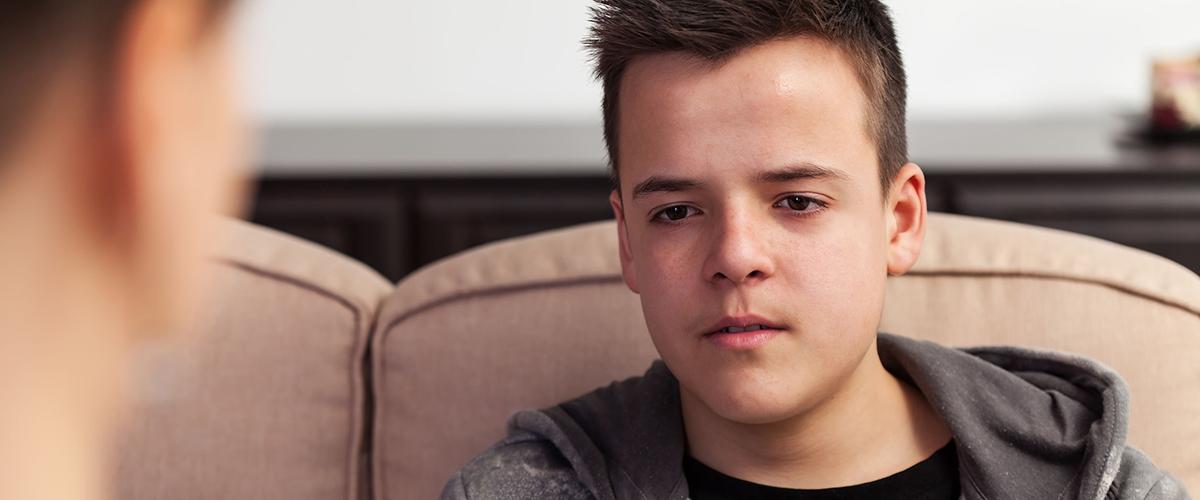
Overview of Mental Health Care and Treatment Options for Children and Youth
When a child or youth needs a more structured setting to work toward managing their mental or behavioral health symptoms, there are many options for parents to consider.
The right option will depend on whether:
- There are immediate or ongoing concerns about safety
- The intensity of treatment is deemed medically necessary
- Treatment has been court ordered
- The child has other needs (e.g., hearing impairments, cognitive or development delays, etc.)
- Placement outside the home is appropriate
If you feel your child could benefit from more intensive or structured mental health treatment, please speak with their care providers to discuss your concerns and get recommendations for programs that are appropriate for them.
Options for Parents To Consider
Inpatient Hospitalization
Children and youth may be admitted to a secure hospital wing if their mental health symptoms are severe; this usually occurs if they are an immediate danger to themselves or others. Inpatient hospitalization is intended to provide psychiatric care and 24-hour monitoring on a short-term basis, until the child is stabilized. Upon discharge from an inpatient hospitalization, families may be referred to longer-term treatment options, which could include regular appointments with a therapist or another more intensive treatment program, such as those outlined below.
Partial Hospitalization
During a partial hospitalization program (PHP), a child or youth will be at the care and treatment facility five to six hours per day, four to five days per week. Children admitted to a partial hospitalization program may receive both group and individual therapy, skills training, and medication management. Some partial hospitalization programs provide an hour or two of schooling. Children enrolled in a partial hospitalization program that does not provide schooling should receive educational services from the school district where they live during their treatment. The length of treatment depends on how they progress in the program, but on average parents can expect their child to be in a partial hospitalization program for four to eight weeks.
Intensive Outpatient
An intensive outpatient program (IOP) has some similarities to a partial hospitalization program. Intensive outpatient programs typically require fewer treatment hours per day. They are often scheduled during afternoons or evenings to be less disruptive to the child’s/youth’s regular schedule. Some intensive outpatient programs may provide medication management in addition to therapeutic services. Parents can expect their child to be in an intensive outpatient program for three to six weeks.
Day Treatment
Children and youth who need therapeutic care on a long-term basis may be admitted to a day treatment program. Day treatment programs offer two to three hours of treatment per day, allowing children time to receive several hours of schooling while they are in the program. Some day treatment programs include onsite schooling. Others may require the child to receive education at school or in an alternative setting provided by the public school district. If a day treatment program provides education, the school district where the child or youth lives is required to provide transportation during normal school hours if the treatment program is within a reasonable distance. Some day treatment programs will also provide medication management.
Residential Treatment
When a child or teen does not respond to outpatient services or has significant mental or behavioral health needs, a residential treatment program may be considered. The child will temporarily live outside of the home at the treatment facility where they are closely monitored by trained staff. Residential treatment provides intensive therapeutic services, including individual, group, and family therapy and medication management. Most residential treatment programs admit children for several months of treatment and school is provided through the public school district where the treatment program is located.
Chemical Dependency Programs
If your child or youth is dealing with substance abuse, you may consider a chemical dependency treatment program. Many adolescents who require substance abuse treatment also have mental or behavioral health needs, so these programs often include treatment for mental health disorders. Depending on the circumstances, the first step in a chemical dependency program may be medical detox to rid the body of addictive substances in order to better focus on counseling and therapy. Medical detox takes place in a hospital or other clinical setting, with close monitoring 24 hours a day. After medical detox, a physician or therapist will determine whether inpatient/residential or outpatient treatment is most appropriate.
Planning for Your Child’s Discharge From a Care and Treatment Program
Care providers and parents will begin discharge planning almost immediately after the child or youth is admitted to a mental health care and treatment program. Discharge goals are established after assessing the child’s current needs, including the expected duration of their treatment. To ensure that parents understand and agree with the discharge goals, they should work closely with the staff who are providing care to their child. A proper and well-planned transition out of a care and treatment program is critical for the recovery of a child or youth with mental or behavioral health needs. Recommendations for ongoing mental health care are not the only thing to consider. Transition planning should include supports that allow the child to be successful at home, in school, and in the community.
A comprehensive transition plan includes parents and others who will be supporting the child or youth after discharge. Some of the key people to include in this plan are:
- Mental health care providers who worked with your child during and prior to treatment
- The mental health case manager assigned to your child through the county
- School staff, including the special education case manager, 504 coordinator, administration, and school social worker or guidance counselor
- Other family members who help support your child
Resources
PACER Center has created planning documents to help parents plan for the transition out of a care and treatment programs:
